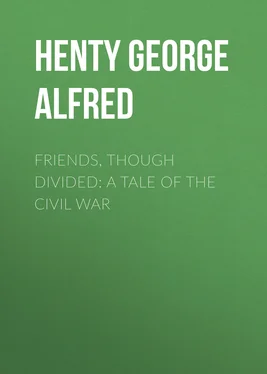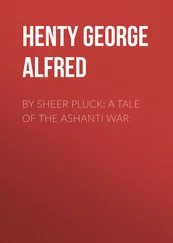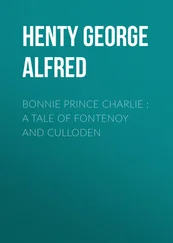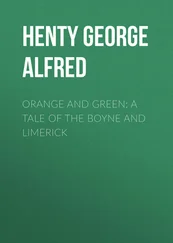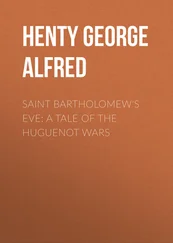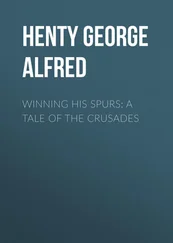George Henty - Friends, though divided - A Tale of the Civil War
Здесь есть возможность читать онлайн «George Henty - Friends, though divided - A Tale of the Civil War» — ознакомительный отрывок электронной книги совершенно бесплатно, а после прочтения отрывка купить полную версию. В некоторых случаях можно слушать аудио, скачать через торрент в формате fb2 и присутствует краткое содержание. Жанр: foreign_children, foreign_antique, foreign_prose, prose_military, на английском языке. Описание произведения, (предисловие) а так же отзывы посетителей доступны на портале библиотеки ЛибКат.
- Название:Friends, though divided: A Tale of the Civil War
- Автор:
- Жанр:
- Год:неизвестен
- ISBN:нет данных
- Рейтинг книги:3 / 5. Голосов: 1
-
Избранное:Добавить в избранное
- Отзывы:
-
Ваша оценка:
- 60
- 1
- 2
- 3
- 4
- 5
Friends, though divided: A Tale of the Civil War: краткое содержание, описание и аннотация
Предлагаем к чтению аннотацию, описание, краткое содержание или предисловие (зависит от того, что написал сам автор книги «Friends, though divided: A Tale of the Civil War»). Если вы не нашли необходимую информацию о книге — напишите в комментариях, мы постараемся отыскать её.
Friends, though divided: A Tale of the Civil War — читать онлайн ознакомительный отрывок
Ниже представлен текст книги, разбитый по страницам. Система сохранения места последней прочитанной страницы, позволяет с удобством читать онлайн бесплатно книгу «Friends, though divided: A Tale of the Civil War», без необходимости каждый раз заново искать на чём Вы остановились. Поставьте закладку, и сможете в любой момент перейти на страницу, на которой закончили чтение.
Интервал:
Закладка:
As it was clear that these demands went altogether beyond the rights of the Commons, and that if the king submitted to them the power of the country would be solely in their hands, while he himself would become a cipher, he had no course open to him but to refuse assent, and to appeal to the loyal nobility and gentry of the country.
It is true that many of these rights have since been obtained by the Houses of Parliament; but it must be remembered that they were altogether alien at the time to the position which the kings of England had hitherto held, and that the body into whose hands they would be intrusted would be composed solely of one party in the state, and that this party would be controlled by the fanatical leaders and the ministers of the sects opposed to the Established Church, which were at that time bitter, narrow, and violent to an extent of which we have now no conception.
The attitude thus assumed by Parliament drove from their ranks a great many of the most intelligent and enlightened of those who had formerly sided with them in their contest against the king. These gentlemen felt that intolerable as was the despotic power of a king, still more intolerable would it be to be governed by the despotic power of a group of fanatics. The liberty of Englishmen was now as much threatened by the Commons as it had been threatened by the king, and to loyal gentlemen the latter alternative was preferable. Thus there were on both sides earnest and conscientious men who grieved deeply at being forced to draw swords in such a quarrel, and who felt that their choice of sides was difficult in the extreme. Falkland was the typical soldier on the royal side, Hampden on that of the Commons.
It is probable that were England divided to-morrow under the same conditions, men would be equally troubled upon which side to range themselves. At this period of the struggle, with the exception of a few hot-headed followers of the king and a few zealots on the side of the Commons, there was a general hope that matters would shortly be arranged, and that one conflict would settle the struggle.
The first warlike demonstration was made before the town of York, before whose walls the king, arriving with an armed force, was refused admittance by Sir John Hotham, who held the place for the Parliament. This was the signal for the outbreak of the war, and each party henceforth strained every nerve to arm themselves and to place their forces in the field.
The above is but a brief sketch of the circumstances which led the Cavaliers and Puritans of England to arm themselves for civil war. Many details have been omitted, the object being not to teach the history of the time, but to show the general course of events which had led to so broad and strange a division between the people of England. Even now, after an interval of two hundred years, men still discuss the subject with something like passion, and are as strong in their sympathies toward one side or the other as in the days when their ancestors took up arms for king or Commons.
It is with the story of the war which followed the conversation of Harry Furness and Herbert Rippinghall that we have to do, not with that of the political occurrences which preceded it. As to these, at least, no doubts or differences of opinion can arise. The incidents of the war, its victories and defeats, its changing fortunes, and its final triumph are matters beyond the domain of politics, or of opinion; and indeed when once the war began politics ceased to have much further sway. The original questions were lost sight of, and men fought for king or Parliament just as soldiers nowadays fight for England or France, without in any concerning themselves with the original grounds of quarrel.
CHAPTER II.
FOR THE KING
It was late that evening when Sir Henry Furness returned from Oxford; but Harry, anxious to hear the all-absorbing news of the day, had waited up for him.
"What news, father?" he said, as Sir Henry alighted at the door.
"Stirring news, Harry; but as dark as may be. War appears to be now certain. The king has made every concession, but the more he is ready to grant, the more those Puritan knaves at Westminster would force from him. King, peers, bishops, Church, all is to go down before this knot of preachers; and it is well that the king has his nobles and gentry still at his back. I have seen Lord Falkland, and he has given me a commission in the king's name to raise a troop of horse. The royal banner will be hoisted at Nottingham, and there he will appeal to all his loyal subjects for aid against those who seek to govern the nation."
"And you think, sir, that it will really be war now?" Harry asked.
"Ay, that will it, unless the Commons go down on their knees and ask his majesty's pardon, of which there is, methinks, no likelihood. As was to be expected, the burghers and rabble of the large towns are everywhere with them, and are sending up petitions to the Commons to stand fast and abolish everything. However, the country is of another way of thinking, and though the bad advisers of the king have in times past taken measures which have sorely tried our loyalty, that is all forgotten now. His majesty has promised redress to all grievances, and to rule constitutionally in future, and I hear that the nobles are calling out their retainers in all parts. England has always been governed by her kings since she was a country, and we are going to try now whether we are to be governed in future by our kings or by every tinker, tailor, preacher, or thief sent up to Westminster. I know which is my choice, and to-morrow I shall set about raising a troop of lads of the same mind."
"You mean to take me, sir, I hope," Harry said.
"Take you?" his lather repeated, laughing. "To do what?"
"To fight, certainly," Harry replied. "I am sure that among the tenants there is not one who could use the small sword as I can, for you have taught me yourself, and I do not think that I should be more afraid of the London pikemen than the best of them."
"No, no, Harry," his father said, putting his hand on the boy's shoulder; "I do not doubt your bravery. You come of a fighting stock indeed, and good blood cannot lie. But you are too young, my boy."
"But if the war goes on for a couple of years, father."
"Ay, ay, my boy; but I hope that it will be ended in a couple of months. If it should last—which God forbid!–you shall have your chance, never fear. Or, Harry, should you hear that aught has happened to me, mount your horse at once, my boy; ride to the army, and take your place at the head of my tenants. They will of course put an older hand in command; but so long as a Furness is alive, whatever be his age, he must ride at the head of the Furness tenants to strike for the king. I hear, by the way, Harry, that that Puritan knave, Rippinghall, the wool-stapler, is talking treason among his hands, and says that he will add a brave contingent to the bands of the Commons when they march hither. Hast heard aught about it?"
"Nothing, father, but I hope it is not true. I know, however, that Master Rippinghall's thoughts and opinions lie in that direction, for I have heard from Herbert—"
"Ah, the son of the wool-stapler. Hark you, Harry, this is a time when we must all take sides for or against the king. Hitherto I have permitted your acquaintance with the wool-stapler's son, though, in truth, he be by birth no fit companion for you. But times have changed now. The sword is going to be drawn, and friends of the king can no longer be grip hands with friends of the Commons. Did my own brother draw sword for Parliament, we would never speak again. Dost hear?"
"Yes, sir; and will of course obey your order, should you determine that I must speak no more to Herbert. But, as you say, I am a boy yet, too young to ride to the wars, and Herbert is no older. It will be time for us to quarrel when it is time for us to draw the sword."
Читать дальшеИнтервал:
Закладка:
Похожие книги на «Friends, though divided: A Tale of the Civil War»
Представляем Вашему вниманию похожие книги на «Friends, though divided: A Tale of the Civil War» списком для выбора. Мы отобрали схожую по названию и смыслу литературу в надежде предоставить читателям больше вариантов отыскать новые, интересные, ещё непрочитанные произведения.
Обсуждение, отзывы о книге «Friends, though divided: A Tale of the Civil War» и просто собственные мнения читателей. Оставьте ваши комментарии, напишите, что Вы думаете о произведении, его смысле или главных героях. Укажите что конкретно понравилось, а что нет, и почему Вы так считаете.
